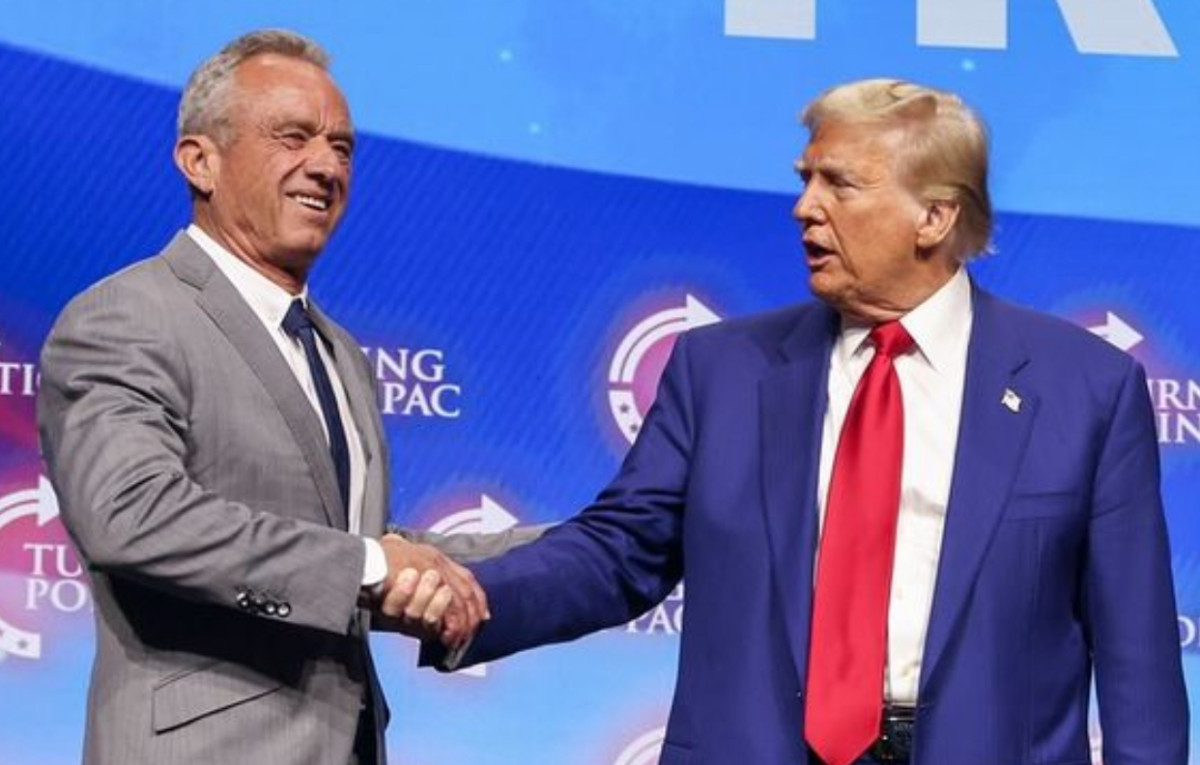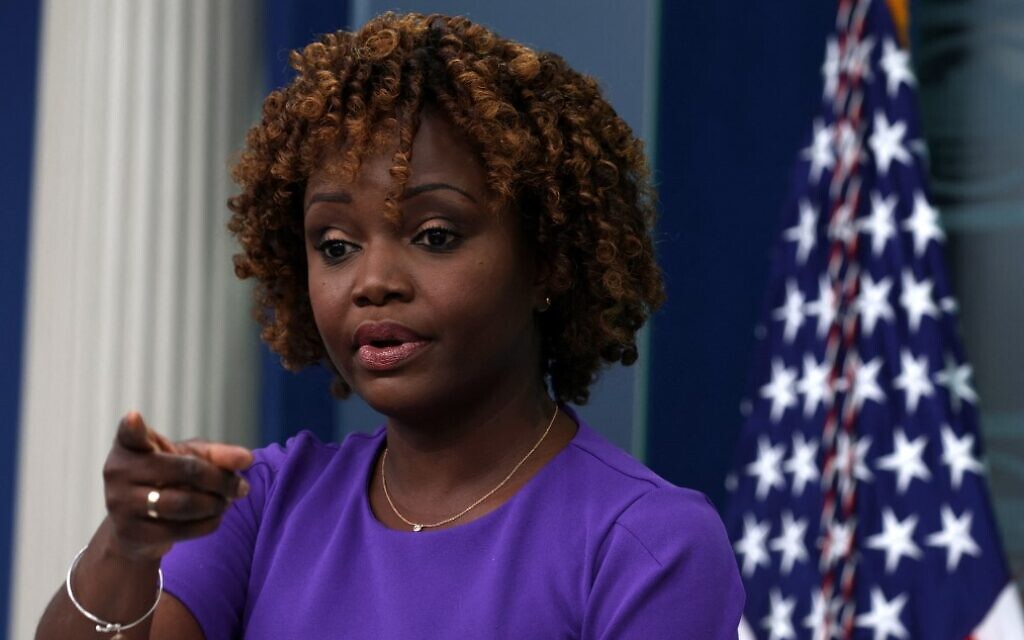Political dynamics within the Republican Party have taken an interesting turn as tensions rise between former President Donald Trump and other party leaders. The recent move by Republicans to counter Trump's attack with a strategic fundraiser highlights the internal struggles within the party. This article explores the nuances of this political maneuver, its implications, and the broader context of Republican Party politics.
The Republican Party has faced significant challenges in recent years, with former President Trump's influence continuing to loom large over the party. As tensions escalate, party leaders are exploring ways to mitigate the impact of Trump's criticism while maintaining party unity. This situation sets the stage for a fascinating examination of political strategy and leadership.
This article aims to provide a comprehensive analysis of the Republican Party's response to Trump's attacks, focusing on their use of a fundraiser as a countermeasure. By delving into the details of this strategy, we can better understand the intricacies of modern Republican politics and the challenges faced by party leaders in navigating these turbulent waters.
Read also:Unveiling The Enigma The Inspiring Journey Of Rayna Vallandingham
Table of Contents
- Background: Understanding the Context
- Trump's Attacks on the Republican Party
- The Fundraiser as a Strategic Countermeasure
- Internal Dynamics of the Republican Party
- A Historical Perspective on Party Conflicts
- Impact on Future Elections
- Public Opinion and Media Coverage
- Key Players in the Conflict
- Future Directions for the Republican Party
- Conclusion: The Path Forward
Background: Understanding the Context
The relationship between former President Donald Trump and the Republican Party has always been complex. While Trump remains a dominant figure within the party, his leadership style and policy preferences have sparked both admiration and criticism among fellow Republicans. In recent months, tensions have escalated as Trump has publicly criticized party leaders for their actions or perceived inactions.
Against this backdrop, the Republican Party's decision to launch a fundraiser aimed at countering Trump's attacks is a significant development. This move reflects the party's efforts to address internal divisions while maintaining a united front for upcoming elections. By examining the context of this decision, we can gain insight into the broader political landscape.
Trump's Attacks on the Republican Party
Key Issues Driving the Conflict
Donald Trump's recent attacks on the Republican Party have focused on several key issues, including leadership decisions, policy stances, and electoral strategies. Some of the main points of contention include:
- Leadership appointments and their alignment with Trump's vision.
- Policy priorities, particularly regarding economic and social issues.
- Strategies for mobilizing the party's base and attracting new voters.
Public Reaction to Trump's Criticism
The public response to Trump's criticism has been mixed, with supporters praising his commitment to party principles and critics arguing that his attacks undermine party unity. This divide highlights the challenges faced by party leaders in balancing competing interests within the Republican base.
The Fundraiser as a Strategic Countermeasure
In response to Trump's attacks, the Republican Party launched a fundraiser aimed at strengthening its financial position and countering negative perceptions. This strategic move serves multiple purposes:
- Raising funds to support party operations and election campaigns.
- Demonstrating party unity and resilience in the face of external criticism.
- Engaging with supporters and stakeholders to build momentum for future initiatives.
By leveraging the fundraiser as a tool for political engagement, party leaders aim to shift the narrative and focus attention on their positive achievements and future plans.
Read also:Santiago Gimeacutenez The Rising Star Of Mexican Football
Internal Dynamics of the Republican Party
Factions Within the Party
The Republican Party is composed of various factions, each with its own priorities and perspectives. These factions include:
- Traditional conservatives focused on limited government and fiscal responsibility.
- Populists aligned with Trump's agenda and emphasis on nationalistic policies.
- Centrists seeking to broaden the party's appeal by embracing moderate positions.
Navigating Internal Conflicts
Party leaders face the daunting task of managing these internal conflicts while maintaining a cohesive platform for electoral success. This requires careful negotiation and compromise, as well as a willingness to address the concerns of all party factions.
A Historical Perspective on Party Conflicts
Internal conflicts within political parties are not new. Throughout history, major parties in the United States have faced similar challenges as they navigate shifting political landscapes and evolving voter preferences. By examining past conflicts and their resolutions, we can gain valuable insights into the current situation within the Republican Party.
Impact on Future Elections
Challenges Facing the Republican Party
The ongoing conflict between Trump and other party leaders could have significant implications for future elections. Key challenges include:
- Mobilizing the party's base while attracting moderate voters.
- Addressing concerns about party unity and leadership.
- Developing effective strategies for competing in key battleground states.
Potential Opportunities
Despite these challenges, the Republican Party also has opportunities to strengthen its position by:
- Highlighting its achievements and policy successes.
- Engaging with new voter demographics and expanding its coalition.
- Building on the momentum generated by recent political developments.
Public Opinion and Media Coverage
Public opinion plays a crucial role in shaping the political landscape. Media coverage of the conflict between Trump and the Republican Party has been extensive, with both positive and negative portrayals influencing voter perceptions. Understanding these dynamics is essential for party leaders as they craft their messaging and outreach strategies.
Key Players in the Conflict
Donald Trump: The Influential Figure
As a former president and prominent figure within the Republican Party, Donald Trump continues to wield significant influence over party politics. His ability to mobilize supporters and shape public discourse makes him a key player in this conflict.
Party Leaders: Navigating the Challenges
Republican Party leaders, including committee chairs and elected officials, are tasked with managing the fallout from Trump's attacks while advancing the party's agenda. Their success in navigating these challenges will have lasting implications for the party's future.
Future Directions for the Republican Party
Looking ahead, the Republican Party faces important decisions about its future direction. Key considerations include:
- Defining the party's core values and priorities.
- Building bridges with diverse voter groups.
- Developing innovative strategies for electoral success.
By addressing these issues proactively, party leaders can position the Republican Party for long-term success in an increasingly competitive political environment.
Conclusion: The Path Forward
In conclusion, the Republican Party's decision to counter Trump's attacks with a fundraiser represents a strategic effort to address internal divisions and strengthen party unity. While challenges remain, the party has opportunities to redefine its agenda and appeal to a broader range of voters. We invite readers to share their thoughts and engage in the conversation by leaving comments or exploring related articles on our site. Together, we can deepen our understanding of the complex dynamics shaping modern American politics.


